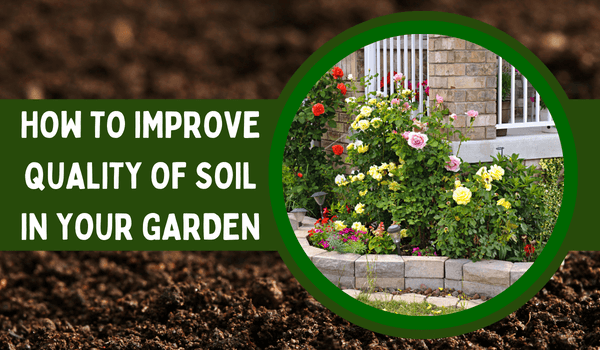The appearance of powdery white patches on the leaves and upper surfaces of plants often indicates the presence of powdery mildew, which can be detrimental to your plants by compromising their health and reducing soil fertility. This condition may arise due to inadequate care, excessive humidity, or fluctuations in weather conditions. Powdery mildew not only affects the leaves and upper parts of the plant but also diminishes the soil’s fertility. However, several natural remedies can help mitigate this issue and protect your plants.
Regularly pruning affected parts, improving air circulation around the plants, maintaining proper watering practices, and applying natural fungicides such as neem oil or baking soda solutions can help prevent powdery mildew and promote overall plant health. Additionally, ensuring adequate sunlight exposure and providing optimal growing conditions can strengthen the plants’ resistance to fungal infections. By adopting these natural methods, you can safeguard your plants against powdery mildew and maintain a thriving garden ecosystem.
Sprays That Prevent Soil From Fungal Infections
Several effective sprays can be used to prevent fungal infections in plants.
- Neem spray, made by mixing two tablespoons of neem oil in two liters of water and thoroughly spraying the solution on both the plants and their soil, is highly beneficial.
- Apple cider vinegar spray, prepared by mixing two tablespoons of apple cider vinegar in one liter of water, can be applied to infected leaves and branches.
- Another effective spray is made by mixing half a tablespoon of liquid soap and a tablespoon of baking soda in two liters of water, which helps in eliminating fungal infections.
- Additionally, spraying a solution of two to three grams of turmeric powder mixed in one liter of water can provide relief from fungal infections and pests.
- Moreover, cinnamon powder can be mixed directly into the soil or soaked in water for 48 hours before spraying on leaves and branches, offering effective protection against fungal diseases.
These natural sprays serve as eco-friendly solutions for maintaining the health and vitality of plants while minimizing the risks posed by fungal infections.
Effective Ways To Make Soil Fertile
- The dung of indigenous cows contains millions of beneficial microbes, which can significantly enhance the fertility of potting soil. To utilize this, cow dung and urine can be mixed into the soil as organic fertilizer for plants. However, it’s crucial to ensure that the cow dung is properly decomposed before use; otherwise, it may harm the plants if not decomposed adequately. Therefore, it’s essential to pay attention to the decomposition process of cow dung to avoid any potential damage to the plants.
- If the soil in pots or grow bags is either too hard or too loose, sand can be used to make it more fertile and soft. Typically, slightly sandy soil is suitable for most pots. However, adding an excessive amount of sand can potentially harm the plants. Therefore, to make the soil fertile and soft, it’s recommended to mix soil and sand in a ratio of 7:1. This ensures that the soil retains its fertility and provides a suitable environment for plant growth without the risk of damage due to excessive sand content.
- To keep the plants healthy, it is essential to provide the right amount of water. However, giving more water than necessary can be detrimental to both the soil in your pots and the plants themselves. In such cases, to maintain the health of the plants, water should only be added when the upper layer of the potting soil appears dry. This ensures that the plants receive adequate moisture without risking overwatering, which could lead to soil compaction or root rot. Therefore, monitoring the soil moisture levels and watering accordingly is crucial for maintaining optimal plant health and growth.
- Calcium is essential for enhancing the soil’s fertility and strength. To fulfill the need for calcium, stone powder can be used in the soil. Eggshells can also be added to supplement calcium deficiency. Incorporating calcium-rich materials like eggshells or stone powder into the soil helps improve its structure and provides vital nutrients to support healthy plant growth. This addition ensures that the plants receive adequate calcium, which is crucial for their overall development and resilience against various environmental stressors.
- To increase the fertility of potting soil, compost made from leaves of banyan, banana, and peepal trees can be utilized. However, it’s essential to ensure that the leaves mixed into the potting soil are free from diseases and fungi to avoid any potential damage to the soil. Incorporating compost enriched with nutrients from these leaves can significantly enhance the soil’s fertility, promoting better plant growth and health. Additionally, using organic compost helps maintain soil structure and supports beneficial microbial activity, fostering a conducive environment for plant roots to thrive and absorb essential nutrients efficiently.
- Neem cake can prove to be beneficial in making your flower pots or grow bags fertile. It not only enriches the soil with essential nutrients but also helps in combating fungal infections that may affect the plants. Additionally, neem cake acts as a deterrent against pests, thus safeguarding your plants from infestations. However, it’s important to note that neem cake should be applied only once every six months to ensure optimal effectiveness. Integrating neem cake into the potting mix contributes to overall soil health and promotes robust plant growth, making it a valuable addition to gardening practices aimed at cultivating thriving and disease-resistant plants.
